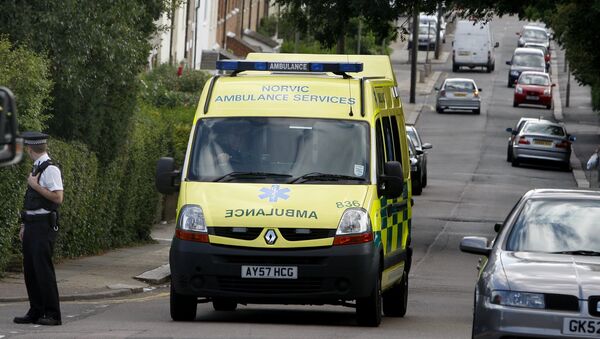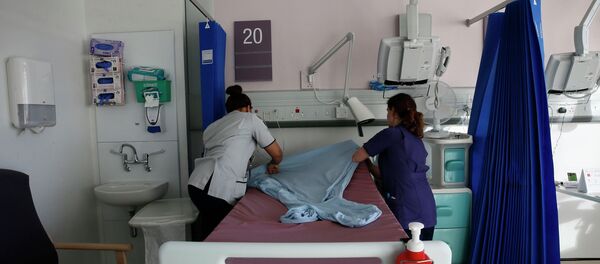The judge said that the ruling does not violate the Human Rights Convention. Critics of the decision said it would effectively mean starving and dehydrating vegetative patients to death. Previously, relatives of such patients had to take their cases to the Court of Protection, but the process could take months or years.
Sputnik discussed the decision by the UK’s Supreme Court with Roger Kiska, legal counsel at the Christian Legal Centre.
Sputnik: In your opinion, how significant is this decision by the Supreme Court?
Sputnik: Wouldn’t withdrawing food and liquid, allowing such patients to die, make them suffer?
Roger Kiska: Absolutely it would; I think any one of us who've gone a few hours without eating or drinking know that feeling. This is a terrible way to die.
The idea this somehow meshes with the European Convention on Human Rights is something I can't agree with. Article 2 says there is a right to life and article 3 says that there’s a prohibition on degrading and inhumane treatment and this violates both of those. I can’t think of a more inhumane way to die than being starved to death and dehydrated to death.
Roger Kiska: I do agree. The reason that there is a requirement to go to court on this, at the moment, is precisely to keep that layer of protection.
I think in the UK there’s been a slippery slope as of late, with regard to the quality of life. Too many doctors are suggesting that because a certain person is in a certain condition, their quality of life is not worth living anymore and that’s a dangerous thing for doctors to be determining. That's a philosophical question, not a medical question.
Sputnik: Is there anything that can be done to reverse the court's decision?
Roger Kiska: There is; these matters can still be brought to Strasbourg, there can be legislation passed in parliament. The status quo in the UK is interesting, because they’ve tried on several occasions in recent years to pass assisted suicide and euthanasia laws and they’ve done so very unsuccessfully; parliament has been quite strong against that.
Yet we see in these type of cases this kind of passive euthanasia that's being done through the courts, which is in contradiction to parliament. I think that needs to be challenged.
Sputnik: What would your message be to those who speak out against euthanasia?
Roger Kiska: Life is precious. Any time a jurisdiction in Europe has passed euthanasia, it's expanded exponentially. When it happened in Switzerland, it grew by 500%; instances of euthanasia — 500% in three years.
Sputnik: Has there been any response from the relatives of the patients?
Roger Kiska: In these cases, it's a fairly narrow ruling in a sense that in all of these cases, the families were in favor of hydration and food being removed; these were unique cases.
It’s still the law that if there’s a case where the families are against those measures, a court order needs to be taken and that needs to be worked out in a court. This is just where the family is complicit in the decision.
The views and opinions expressed by Roger Kiska do not necessarily reflect those of Sputnik.




